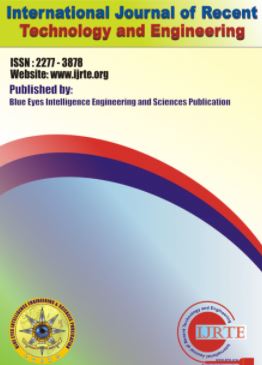Research Papers/Articles
Distributed Data Validation for a Key-Value Store in a Decentralized Electric Vehicle Charging Network
2019
Author(s): Kirpes B, Roon M, Burgahn C
In this paper, the authors contribute to the body of research by analyzing the current situation in distributed systems and presenting the design and development of a mechanism for a distributed data validation.
Recycling 4.0: An Integrated Approach Towards an Advanced Circular Economy
2020
Author(s): Blömeke S, Mennenga M, Herrmann C, Kintscher L, Bikker G, Lawrenz S, Sharma P, Rausch A, Nippraschk M, Goldmann D, Poschmann H
Resource scarcity is a global challenge, especially in E-mobility. Currently, Electric vehicles (EVs) are considered as an attractive option on a pathway towards low emission mobility.
Review-Polymer Electrolytes for Rechargeable Batteries: From Nanocomposite to Nanohybrid
2020
Author(s): Boaretto N, Meabe L, Martinez-Ibañez M, Armand M, Zhang H
In this short review, the authors briefly outline the advances and progresses in composite polymer electrolytes and hybrid polymer electrolytes with the spotlights on nano-sized materials, underlining their ionic conductivities, stabilities, and electrochemical performances in cell systems.
A Review of Spatial Localization Methodologies for the Electric Vehicle Charging Infrastructure
2019
Author(s): Pagany R, Ramirez Camargo L, Dorner W
The present paper provides a comprehensive overview of the state-of-the-art literature for CS location analysis. It categorizes the literature with view to the modeling approach and provides specific information, especially with regard to the criteria applied for identifying CS locations.
E-Mobility in Agriculture: Differences in Perception Between Experienced and Non-Experienced Electric Vehicle Users
2019
Author(s): Riedner L, Mair C, Zimek M, Brudermann T, Stern T
A growing population and the impact of climate change represent clear challenges for the agricultural sector. The present study was conducted in the course of a pilot project on e-mobility in rural Austrian regions.
Integrated Transport Planning: From Supply- to Demand-Oriented Planning. Considering the Benefits
2019
Author(s): Schwedes O, Hoor M
The idea of integrated transport planning is widely accepted in the research community as well as in the field of transport policy. Acknowledging the gap between concept and reality, the benefits of a demand-oriented approach have to be reconsidered by the various stakeholders in politics, the economy, planning and civil society.
Overview of Battery Models for Sustainable Power and Transport Applications
2019
Author(s): Tomasov M, Kajanova M, Bracinik P, Motyka D
Battery modeling is an excellent way to predict and optimize some batteries’ basic parameters like state of charge, battery lifetime and charge/discharge characteristic.
Modelling Effects of the Distributed Generation Supporting E-Mobility on the Operation of the Distribution Power Network
2019
Author(s): Tomasov M, Motyka D, Kajanova M, Bracinik P
The essential idea to support an e-mobility from available electricity point of view is to use distributed generation to produce free electricity to charge e-vehicles. In recent years, the use of electric vehicles is increasing as a solution for reduction of air pollution and global warming, so the need for electricity is also increasing.

Wind Energy Conversion System for a Moving Vehicle
2019
Author(s): Gururaj HC, Hegde V
India has the second largest road network in the world, since the highway is wide open space there will not be any obstruction for the wind flow. When the vehicle is moving at a faster rate on a highway, the velocity of the wind on top of the vehicle will be high, which can be used to produce electricity.
Commercial Viability of Electric Vehicles in India
2018
Author(s): Kumar A, Choudhary SK, Chethan KN
India has pledged to cut down its share of GHGs emissions significantly in order limit the average increase in global temperature. As a result of this, the Indian government has set a target of 100% e-mobility by 2030.



